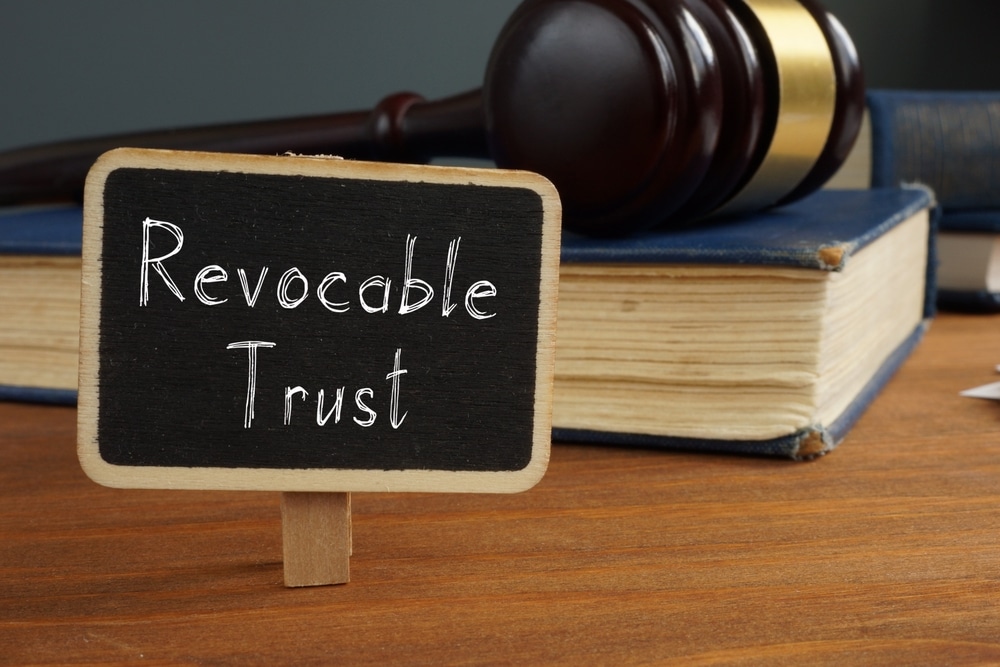Do Revocable Trusts Need a Separate Tax ID Number?
Q: I have a question regarding my mom’s revocable trust. My brother and I are the beneficiaries of the trust. The home was put on the market while my mom was alive but she has since passed. We actually received an offer for the home on the day she died.
We just closed on the home and realized my attorney never set up a federal tax identification number for the trust. All of the proceeds from the sale of the home came to my brother and to me.
I’ve been trying to reach my tax preparer to discuss the situation, but it’s taking forever. I need to know if revocable trusts need a separate tax ID number. The home sold for less than the list price. But we sold within a year of her passing, so I believe we will get the step-up basis. Thank you for any assistance you can offer.
Missing Tax ID numbers aren’t a problem for revocable trusts
A: We’re sorry for your loss. The good news is that missing a tax identification number isn’t an unknown problem. What is unique is that you received an offer for your mother’s property on the day she died.
Let’s talk about living trusts and how they work. A living trust is a document that creates a legal entity that can own and hold property and other assets. These assets are usually those types of assets that might require you to go to a probate court after the death of a loved one to sell or change the name on the asset. These assets can be bank accounts, stock certificates, insurance policies, homes, boats, recreational vehicles and other investments.
Revocable trusts have a trustee and a beneficiary
On the day your mom’s attorney set up the trust, your mom was likely the trustee and the beneficiary under the trust. This allowed her to do everything that she otherwise could do if the property was in her name alone.
Your mom held her home in the trust but she didn’t need a different tax identification number for her trust. For purposes of the Internal Revenue Service (IRS), the trust was a disregarded entity and would treat her assets as if she held them in her own name. However, on the day she died, the IRS would require her estate to obtain a new tax identification number.
Revocable trusts name successor trustees
Now, let’s go back to your situation. We suspect that your mom named you and your brother as beneficiaries under your mom’s trust and likely set one or both of you as the replacement or successor trustees. In this situation, you and your brother became owners of the assets held in the trust. The home you sold was effectively a home you and your brother owned.
Here’s where the disregarded entity comes into play again. The IRS would treat the sale of the home as a sale that you and your brother made. One-half of the sale should have been reported under your social security number. The other half would be reported under your brother’s social security number.
Revocable trusts transfer assets automatically
Do you know if the settlement agent requested your and your brother’s social security numbers? We hope so. Otherwise, we don’t know what number the settlement agent used to report the sale. The settlement agent should not have used your mom’s social security number as she was deceased at the time of the closing.
Finally, you mentioned the stepped-up basis of the home. This tax concept essentially means that your mom could have purchased the home years and years ago for almost nothing. Then, when she dies, you and your brother inherited the home at the home’s value around the time of her death. This would mean that the sales price of the home was effectively the cost to you of the home and thus you’d have no profit on the sale of the home.
You may not owe any tax on the sale of inherited assets
Let’s say your mom bought the home 30 years ago for $50,000. You sold it for $500,000. It would appear that there is $450,000 of profit in that sale (excluding commissions, transfer taxes and other fees for simplicity). However, your mom didn’t sell the home. You sold the home. So for purposes of your mom’s estate, she didn’t have a profit on the sale of the home. You inherited the home with a value of $500,000 and you sold it for $500,000, so you didn’t make a profit on the sale either. This means that you won’t have any federal income taxes to pay on the sale of the home and your mother’s estate won’t have to worry about taxes on the sale either.
When a person dies and the assets in that person’s estate at the time of their death have a value of less than $12,920,000 (as of 2023), the estate usually owes no federal taxes. The state government in which the deceased person resided may levy some taxes on the estate. For that, you’ll have to talk to your local tax preparer. As far as the estate is concerned or your own income tax return, you and your brother should be fine.
Estate attorneys can explain the rules about revocable trusts and tax ID numbers required for them
The one concern we have is if the settlement agent used your mom’s old social security number to report the sale. That could potentially cause you an issue as your mom could not have sold the home since she was deceased. The sale should have been reported under your and your brother’s social security numbers or your mom’s estate’s identification number issued by the IRS.
If you have more questions, you can ask the IRS directly or talk to an enrolled agent or Certified Public Accountant (CPA).
Read more about trusts:
Execute a Living Trust After Death
What Happens When You Sell a Property in a Trust?
Should I set up a trust or use a transfer-on-death (TOD) deed?
Sign up for Ilyce Glink’s free newsletter: Love, Money + Real Estate
©2023 by Ilyce Glink and Samuel J. Tamkin. Distributed by Tribune Content Agency. C1606







Leave A Comment